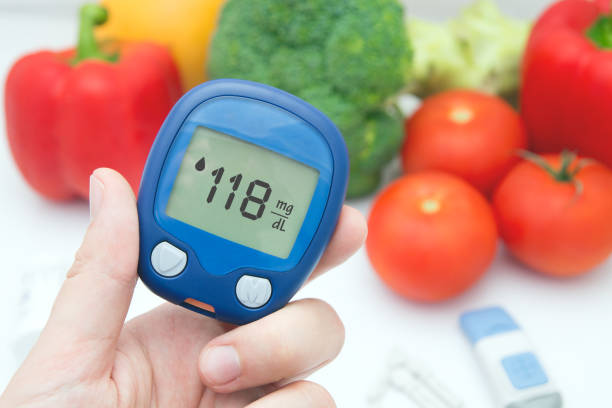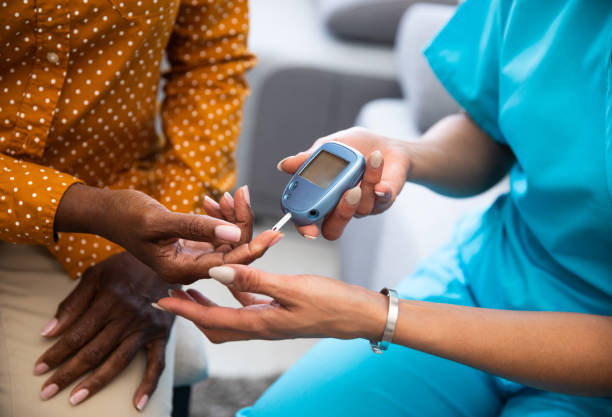High blood sugar, also called hyperglycemia, can happen suddenly and without warning. You don’t have to have diabetes for your blood sugar levels to rise. Things like stress, an unhealthy diet, or being sick can all cause your blood sugar to go up. Knowing the early signs of high blood sugar helps you act fast. Taking quick action can protect your health and keep your body balanced.
In this guide, we’ll explain the most common symptoms of high blood sugar, why they are important, and how you can manage your blood sugar naturally. Whether you are managing diabetes or just want to stay informed about your health, this article is made for you.
What Is High Blood Sugar?
Before we get into the symptoms, it’s important to understand what high blood sugar really means.
Blood sugar is the amount of glucose in your blood. Glucose comes from the food you eat and gives your body the energy it needs. But when glucose builds up too much, your body can’t process it well. That’s when problems begin.
Here’s what to know:
- A fasting blood sugar level higher than 125 mg/dL is considered too high.
- After eating, a level over 180 mg/dL is also a red flag.
If not managed, high blood sugar can lead to serious health issues. These include type 2 diabetes, heart problems, kidney damage, and even vision loss.

1. You’re Thirsty All the Time
One of the early signs of high blood sugar is feeling thirsty all the time—even after you’ve had plenty of water.
When your blood sugar is too high, it pulls fluids from your cells. This makes your body feel dehydrated, which activates your thirst response. As a result, you may find yourself drinking more and more.
If you’re constantly reaching for water but still feel dry or unsatisfied, it could be a sign that your blood sugar levels are too high.
2. You’re Urinating More Than Usual
Frequent urination, also known as polyuria, is another common sign of high blood sugar—and it often comes with increased thirst.
When your blood sugar is too high, your kidneys try to remove the extra glucose. To do this, they make more urine, which helps flush the sugar out of your body. This process can lead to:
- Waking up during the night to use the bathroom
- Feeling dehydrated, even if you’re drinking water
- Losing key minerals like magnesium and potassium
Tip: If you’re urinating more than 7–8 times a day without drinking extra fluids, it might be time to check your blood sugar levels.–8 times a day without increased fluid intake, it’s worth checking your blood sugar.
3. You Feel Tired All the Time
Fatigue is a common and important symptom of high blood sugar.
When your body can’t use sugar properly because of insulin resistance, your cells don’t get the energy they need. This can leave you feeling:
- Constantly tired or worn out
- Weak or slow to move
- Mentally foggy or having trouble concentrating
Don’t ignore ongoing tiredness—especially if you notice it along with other signs of high blood sugar. It could be your body’s way of telling you something is wrong.
4. Your Vision Is Blurry
Blurred vision is one of the less obvious but important signs of high blood sugar.
When there is too much sugar in your blood, it can cause the lens inside your eye to swell. This swelling changes the lens’s shape and makes it harder to focus clearly.
The good news is that blurred vision often improves once your blood sugar levels go back to normal. However, if high blood sugar stays untreated for a long time, it can lead to serious and permanent eye problems, such as diabetic retinopathy.

5. You’re Losing Weight Without Trying
Unexpected weight loss can be an important warning sign of high blood sugar.
When your body can’t use glucose for energy, it begins to break down fat and muscle to keep going. This process can lead to:
- Fast or sudden weight loss
- Loss of muscle strength
- Feeling hungrier than usual
This symptom is often seen in people with undiagnosed type 1 diabetes but can also occur in type 2 diabetes. If you notice sudden weight changes without trying, it’s a good idea to check your blood sugar.
6. You’re Hungry Right After Eating
If you eat full meals but still feel hungry afterward, high blood sugar might be the cause.
This happens when your cells can’t absorb glucose properly. Because your body’s cells aren’t getting the fuel they need, your brain signals that you’re still hungry—even though you’ve just eaten.
This strong, ongoing hunger is called polyphagia, or excessive hunger, and it’s a common sign of high blood sugar.
7. Your Wounds Are Slow to Heal
High blood sugar can weaken your immune system and harm your blood vessels. This makes it harder for your body to heal wounds, cuts, and sores.
You might notice signs like:
- Small cuts that take a long time to heal
- Frequent infections that keep coming back
- Skin ulcers or sores, especially on your feet or legs
This problem is a serious concern for people with diabetes. If left untreated, it can lead to major health complications.
8. You’re More Prone to Infections
When your immune system is weak, you become more prone to infections such as:
- Urinary tract infections (UTIs)
- Yeast infections
- Skin infections
- Gum disease
High blood sugar creates an ideal environment for bacteria and yeast to grow. This makes it harder for your body to fight off these infections and stay healthy.
9. Your Hands and Feet Feel Tingly or Numb
This symptom could be a sign of diabetic neuropathy, which is nerve damage caused by high blood sugar over time.
You might experience:
- Tingling or prickling in your fingers or toes
- Numbness or a “pins and needles” feeling
- Burning or sharp pain, often worse at night
If these symptoms continue, it’s important to see a doctor. Without proper blood sugar control, nerve damage can become permanent. see a doctor. Nerve damage can become permanent if blood sugar isn’t managed.
10. You Feel Moody or Anxious
High blood sugar doesn’t just impact your body—it can also affect your mind.
When glucose levels are off balance, they can disrupt how your brain works and affect hormone levels. This may cause you to feel:
- Irritable
- Anxious
- Depressed
Research is increasingly showing a strong link between blood sugar levels and mental health. For more information, you can explore resources from the National Institute of Mental Health.
When to See a Doctor
If you notice several symptoms from this list, it’s important to see your doctor. They might suggest tests such as:
- A fasting blood glucose test
- An HbA1c test, which shows your average blood sugar over the past three months
- A glucose tolerance test
Finding high blood sugar early can help prevent diabetes and avoid serious health problems in the future.

How to Manage Blood Sugar Naturally
You can take many natural steps to keep your blood sugar in check without relying on medication:
✅ Eat a Balanced Diet
- Choose whole grains, lean proteins, and plenty of vegetables for your meals.
- Try to avoid sugary drinks and processed foods that can spike your blood sugar.
- Adding fiber to your diet can help slow down how quickly sugar is absorbed into your bloodstream.
✅ Exercise Regularly
- Try to get at least 30 minutes of physical activity on most days of the week.
- Activities like walking, swimming, or cycling are great ways to help control your blood sugar levels and improve your overall health.
✅ Stay Hydrated
- Drinking plenty of water helps your body flush out extra sugar from your bloodstream. Staying well-hydrated supports healthy blood sugar levels and overall wellness.
✅ Get Enough Sleep
- Not getting enough quality sleep can make your body more resistant to insulin. This means your blood sugar levels may rise more easily and become harder to control.
✅ Monitor Your Levels
- If your doctor suggests it, use a glucose monitor to keep track of your blood sugar levels.
The American Diabetes Association offers many helpful tips and resources to support you in managing your health.
Final Thoughts
Recognizing the signs of high blood sugar early can greatly improve your health. From common symptoms like thirst and fatigue to more serious problems such as nerve damage, these signs are your body’s way of asking for help. Paying attention and acting quickly can prevent complications and keep you feeling your best.
If you recognize any of these warning signs, don’t ignore them. A simple blood sugar test can provide the answers you need. Getting tested is the first important step toward better health and managing your blood sugar effectively.
Have you noticed any signs of high blood sugar? What steps have you taken that helped you feel better?
We’d love to hear your story—leave a comment below to share your experience!
And don’t forget to share this post with a friend or family member who might find it helpful.

